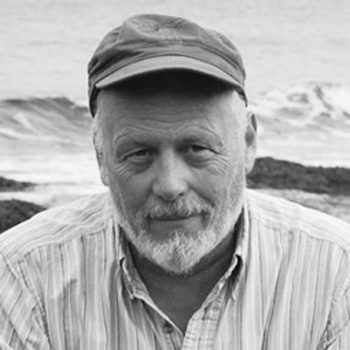
Peter Timmerman is an Associate Professor in the Faculty of Environmental Studies at York University in Toronto. He has been working on environmental issues for many years, beginning with emergency and risk research, early work on climate change (his monograph, Vulnerability, Resilience and the Collapse of Society was published in 1981), coastal zone and disaster management and global change. He was the co-chair for the Canadian NGO Earth Charter process for the Rio Earth Summit in 1992. He continues as a public activist and author on topics such as genetic manipulation and nuclear waste management.
He now works primarily on environmental philosophy and ethics, including religion and ecology in the context of the emerging Anthropocene, with a special research focus on Buddhism and environmental activism in South and Southeast Asia. In the area of Ecological Economics, he is currently working on the rise of the language and metaphors of the self, progress, growth, and development in the 18th century and after, and has recently co-edited Ecological Economics for the Anthropocene for Columbia University Press, a volume of papers deriving from a collaborative, multi-university project on the ethical foundations of ecological economics. His most recent publication for a special thematic cli-fi volume of Exile is a climate fiction on the exhumation and desecration in the 2050s of the bodies of climate change deniers from the early 21st century.
His work with CUSP, in support of exploring the foundations of the contemporary economistic world view is, among other things, a paper entitled “Conditions not Constraints: Learning to Live in a Finite World”. He argues that our worldview is a hybrid of romanticism and capitalism which mutually reinforce an ontology of the infinite—the breaking through of all constraints as the basis of human freedom. Truly confronting a finite planet is causing what I call an emerging ‘implosion of sensibility’ across social, cultural and economic domains. The core of his research is to see what a redefinition of the human means in this reframing, initially in the realm of ecological economics.
Recent Publications
Timmerman P 2017. Growth and Development. In The Handbook of Sustainable Development, ed. P. Victor and B. Dolter. (London: Edward Elgar), pp. 17-39.
Timmerman P 2017. Learning to Live in a Finite World. Alternatives, Vol. 42, No.1., pp.17-22.
Timmerman P 2016. Learning to Live in a Finite World. International Journal of Multidisciplinary Studies, Vol. 2, No. 1.
Timmerman P 2015. Ecological Ethics for the Anthropocene (ed. with P. G. Brown). (New York: Columbia University Press.
Timmerman P 2015. Introduction (with P.G. Brown) and Alternative Economies. In: Ecological Economics for the Anthropocene, ed. P. G. Brown and P. Timmerman. New York, NY: Columbia University Press, pp. 1-65.
—2010. Boundary Matters: Buddhism and the Genetic Prospect. Worldviews: Global Religions, Culture, Ecology, Vol. 14, pp. 68-82.

